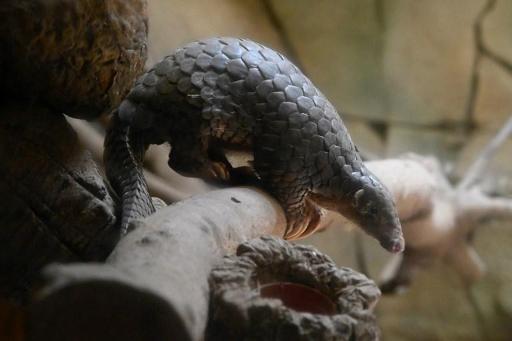The pangolin, a small mammal facing extinction, could be the animal that transmitted the new Coronavirus to humans, Chinese scientists said on Friday.
Researchers at the South China Agricultural University identified the pangolin as a “possible intermediate host” facilitating the transmission of the virus, the university announced in a press release. It gave no further details.
An animal that hosts a virus without falling ill and can spread it to other species is known as a reservoir. In the case of the new Coronavirus, bats are the most likely reservoir: according to a recent study, the genomes of the virus and those of bats are 96% identical.
However, the virus carried by bats is not equipped to latch on to man, so it must have passed through another species, an intermediate host, to adapt to humans.
After testing about 1,000 samples from wild animals, the researchers have determined that virus genome sequences taken from pangolins are 99% identical to those taken from patients with the Coronavirus, according to the New China news agency.
The new virus first appeared in December at a market in the central city of Wuhan, where a number of animals, including wild mammals, were being sold for human consumption.
Given the nature of this virus, experts suspected the intermediate host was a mammal. The hypothesis that it was a snake was advanced, at one point, but quickly dismissed.
The pangolin’s delicate flesh is prized by Chinese and Vietnamese gourmets, while its scales, bones and organs are highly valued in traditional Asian medicine.
The Brussels Times

